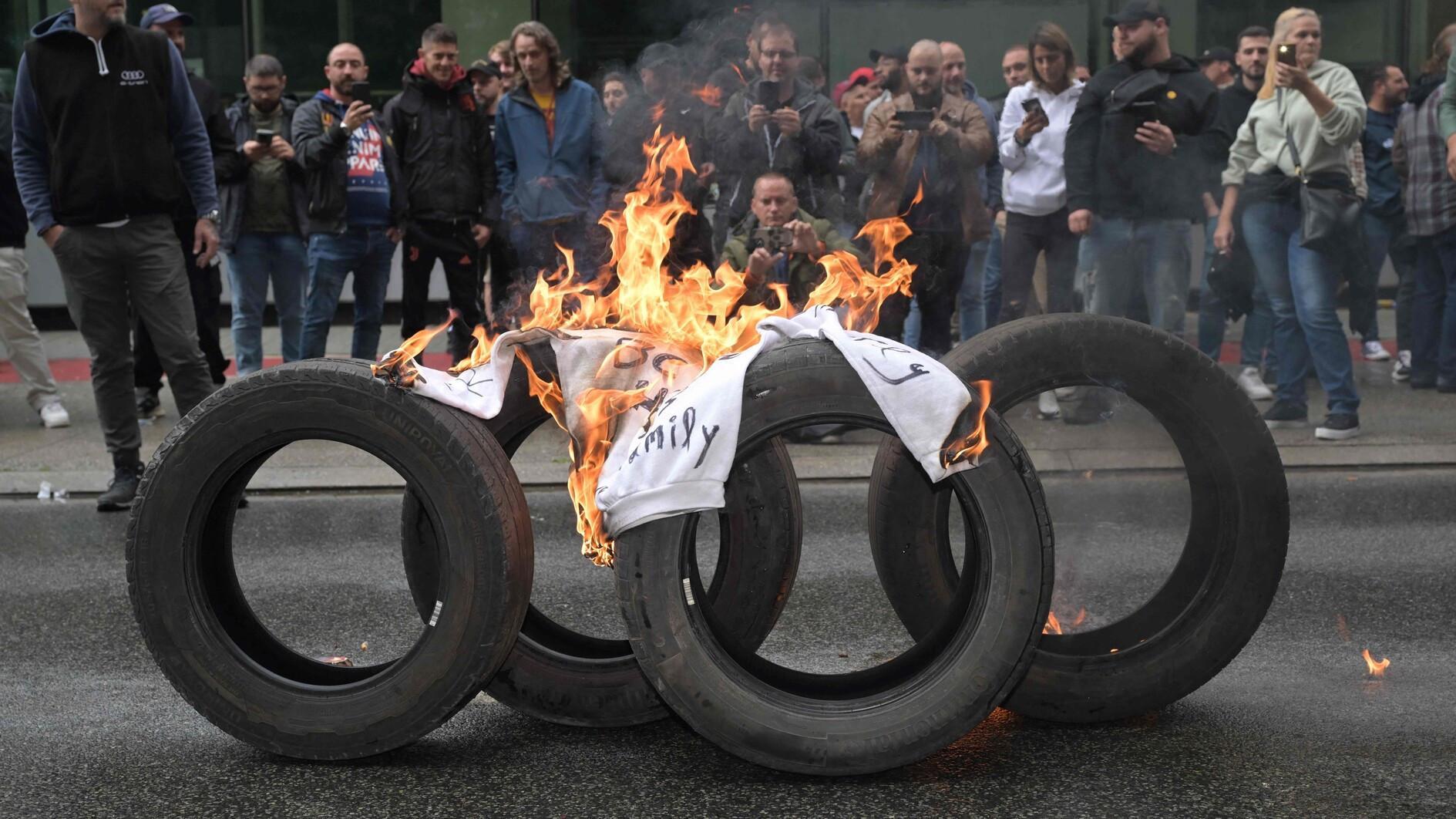
Outside an Audi factory in Brussels described by the German carmaker as the "cradle" of its electric drive, around 200 picketing workers huddled around a bonfire in the morning drizzle.
The firm is considering closing the plant, a move that analysts say is symptomatic of the troubles afflicting Europe's wider electric car industry, amid low demand and competition from China.
Audi is a subsidiary of Volkswagen, which earlier this month made the bombshell announcement that it was considering the unprecedented step of closing production sites in Germany.
With 3,000 jobs on the line, the Brussels workers have launched a prolonged strike, with a large demonstration planned in the capital on Sept. 16 and walkouts elsewhere in solidarity.
Some have been sleeping in tents outside the modern facility, which switched to producing electric vehicles (EVs) in 2018 after 70 years making combustion engine models.
Europe has been racing to produce more EVs as part of its green transition, with the clock ticking down on an EU deadline to phase out the sale of fossil fuel-burning cars by 2035.
But sales have struggled to take off.
New registrations dropped 6 percent on the previous year across the continent in July, according to the European Union.
This was partially due to the phasing out of some subsidies but the weakening demand has fuelled concerns about the sector.
The potential closure of the factory in the Belgian capital was a "first effect" of the challenges facing European carmakers, said Felipe Munoz, an analyst with the automotive data company Jato Dynamics.
Cheaper Chinese vehicles have saturated the market while consumers are yet to warm up to EVs, which have higher upfront costs and tend to lose value more quickly, he said.
Announcing that it was considering shutting the Brussels site in July, the firm said demand for the high-end Q8 e-tron manufactured there dropped and the factory suffered from high logistics and production costs.
A few kilometres away, plans to slap import duties of up to 36 percent on EVs imported from China are under discussion at the European Union's headquarters.
The EU decided in July to levy extra tariffs after an anti-subsidy probe concluded car manufacturers in China benefitted unfairly from state subsidies.
But the move has faced resistance from some countries, including Spain and Germany, which fear damage to trade ties with Beijing.
A report by former European Central Bank chief Mario Draghi last week said the tariffs would "help level the playing field."
But an "industrial action plan" was needed to help European manufacturers to pull through and continue in their path towards decarbonisation.
"These countervailing duties can give companies a breather," said Conor McCaffrey, an analyst at Bruegel, a Brussels-based think tank.
"But alone they won't be enough. Productivity and competitiveness also need to massively increase."